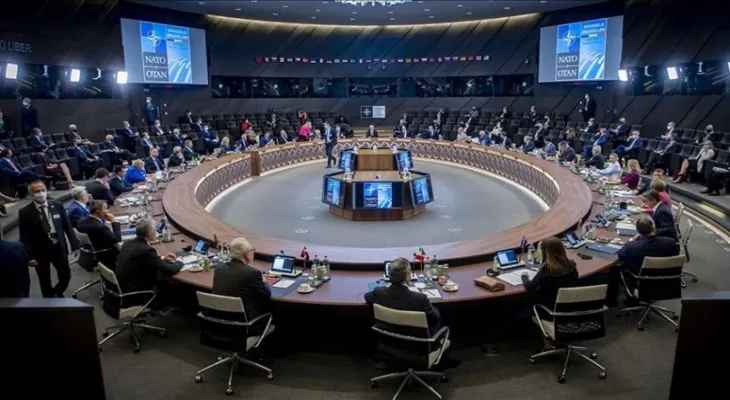Search here
Newspaper
Search here

Arab Canada News
News

Published: May 27, 2022
Alongside the mobilization regarding the fierce war in Ukraine on its borders, NATO is active on another front, the domestic terrorism front, testing this week in the Rome metro technologies capable of detecting weapons or explosives.
The "Dexter" project, one of the scientific research projects with non-military objectives developed by the alliance, aims to ensure the security of subway trains, stations, and airports that hundreds of millions of travelers and passengers pass through daily worldwide, and are frequently targeted by deadly attacks.
"Dexter" relies on different technologies using sensors and software to provide real-time information to police officers and security personnel monitoring passengers in public spaces.
In this context, large screens were installed this week in one of the metro tunnels in the suburb of the Italian capital, broadcasting color images from radar and laser systems.
The radar used to scan passing passengers produces high-resolution two-dimensional and three-dimensional images that reveal the presence of a weapon in red, while the laser system allows for detecting traces of explosive materials.
Afterward, the results of the two sensors are merged and analyzed by software, and a quick alert is sent to a police officer in the monitoring room via smart glasses worn by him.
Henry Bouma, a researcher at the Dutch research agency TNO, explained, "We can combine the information from the first and last sensors and merge them, sending a message to the police officer."
Prototype
The two systems achieved a one hundred percent success rate during the last month of trials in detecting individuals carrying weapons or bearing traces of explosives.
As for tests on large crowds, they gave a success rate "exceeding 99%" according to Bouma.
David Van Weel, NATO assistant secretary general in charge of emerging security challenges, explained that this technology could have a "tangible impact" on civilians' lives, noting that it differs from random searches by being more precise and less intrusive.
About ten research institutes from NATO member countries (Italy, France, Germany, and the Netherlands) or partners (Ukraine, South Korea, Serbia, Finland) participate in the project.
Doniz Beten, who oversees NATO's science program in the service of peace and security, stated, "It is just a prototype" at present.
She continued, "We hope that within a year or two, we can market it for use in subways, airports, and other infrastructures chosen by countries."
Amid the decline of public funding for civilian research and development projects for decades, programs like "Dexter" are important to fill gaps in the private sector or even stimulate their participation, Van Weel explained.
He added, "Our goal is to stimulate real-time tracking that will primarily be handled by the private sector," pointing to the possibility of licensing the use of "Dexter" technology.
Comments